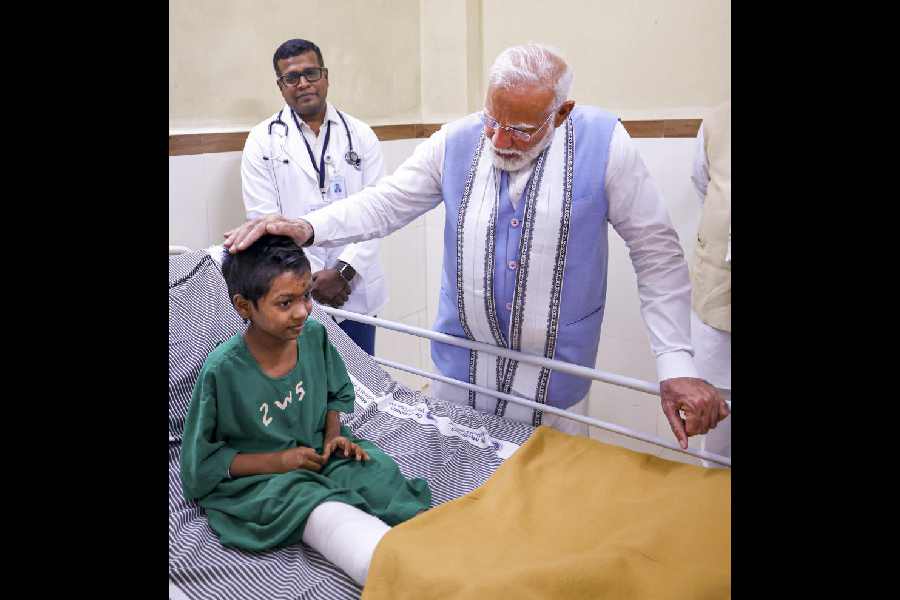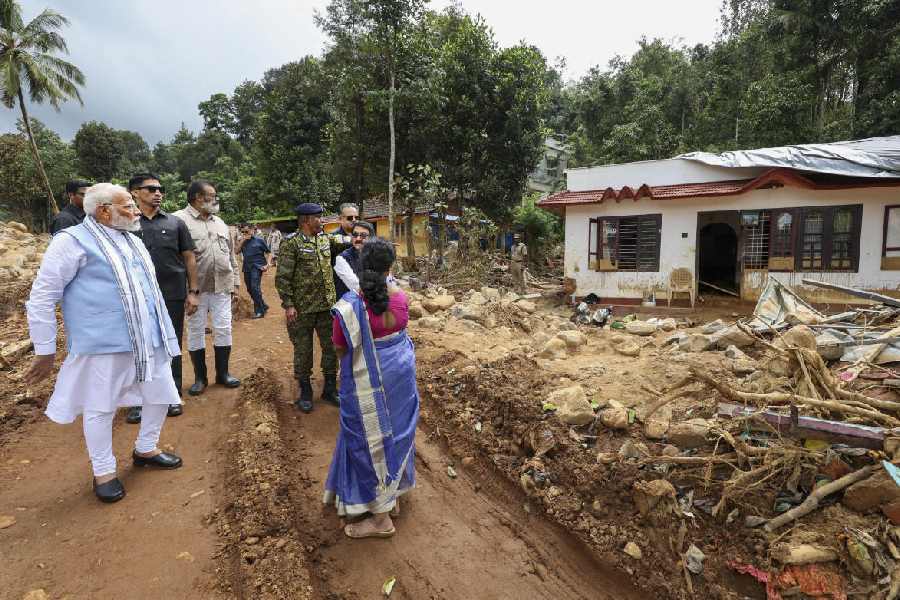Eleven days after devastating landslides killed over 400 in Wayanad, Prime Minister Narendra Modi on Saturday visited the Kerala tourist hub that was till recently Rahul Gandhi's Lok Sabha constituency and assured the survivors that his government would do everything necessary to rehabilitate them.
"I assure the survivors that they are not alone. Whether it is the state government or the central government, we are all with them during these difficult times," Modi told a meeting at the district collector’s office.
He added: "I have been monitoring (the situation). But I didn’t want to come here and hinder the rescue and relief operations. So I came here today and saw everything in great detail."
Earlier, Modi had made an extensive tour of the landslide-ravaged villages, a relief camp and a hospital where he interacted with survivors.
"It’s not possible for us humans to bring back those who have lost their lives. But it is our responsibility to make sure the dreams of the survivors are not entirely shattered," Modi said in the presence of Kerala chief minister Pinarayi Vijayan.
Vijayan and state government officials briefed the Prime Minister about the requirements for the rehabilitation of the about 10,000 people now staying in relief camps.
Modi’s flight landed at Kannur airport around 11am, after which an IAF helicopter flew him to Kalpetta, district headquarters of Wayanad.
He was then driven to the once-picturesque village of Chooralmala that, along with Mundakkai uphill, was mauled beyond recognition by the July 30 landslides that left around 130 still missing.
"I don’t see any work stopping here for the lack of funds,” the Prime Minister said, promising full support from the Centre.
“The Government of India will not spare any effort to provide livelihood, schools, accommodation, road infrastructure or anything that’s needed to rebuild the lives of the people, especially the children.”

Prime Minister Narendra Modi interacts with a child affected by the recent landslide, at AWS Hospital in Wayanad, Saturday, Aug. 10 PTI
Vijayan, governor Arif Mohammed Khan and minister of state for tourism Suresh Gopi accompanied Modi. Additional director-general of police M.R. Ajith Kumar briefed the Prime Minister as he walked through Chooralmala, dotted with huge boulders that dwarf even the giant earthmoving equipment that have been scouring for bodies.
Modi then visited a relief camp at the St Joseph’s Girls’ Higher Secondary School in Kalpetta where he met 12 survivors, all of whom had lost family members.
Before heading to the collector’s office in Kalpetta, Modi met four injured people at the Wayanad Institute of Medical Sciences.
Among them was Arun, who was buried neck-deep in mud before being rescued hours after the landslides.
Arun later told reporters from his hospital bed: “I’m sure I shall return to a normal life, shan’t I?”
Ayyappan, whom Modi met at the camp, later told reporters the Prime Minister had promised all help.
“All I asked him was for a house. After someone translated my words into Hindi, the Prime Minister told me, ‘Don’t worry, we are there for you’,” Ayyappan, a Mundakkai resident, said.
He added: “I lost nine members of my family, including my mother, aunts and their children. I somehow survived along with my wife and two children.”
Modi also recalled his own experience with the aftermath of disaster -- when he had worked as a volunteer for six months in Morbi, Gujarat, after the Machchu Dam collapsed in 1979, killing hundreds.
"It was a mud dam and mud flooded every house. I was there for six months working as a volunteer."
He said he could only "imagine how the people (in Wayanad) survived".










